Australian group offers expertise to help get Pacific MPs
04th September, 2012
Radio Australia, 3 September 2012, 12:25 AEST
This year’s Pacific Islands Forum has focussed attention on the issue of gender equity and the role of women in politics.
The Pacific lags behind much of the world when it comes to women in parliament and Australia could do much better too.
One group has been working for the last 18 years to get Australian women into politics.
They’ve helped elect 153 women to parliament, and created a model that other countries are looking to.
The group is called Emily’s List.
Presenter:Geraldine Coutts
Speaker:Hutch Hussein , National Convenor, Emily’s List, Australia
HUSSEIN: I think that we found that it’s not just about relying on goodwill, but it’s actually about changing the rules and so Emily’s List was established post-the ALP establishing its assembly of action quota, so the rules were changed, but you also needed to change the culture. So in ways this is based on a US model and Emily actually stands for Early Money Is Like Yeast. So the key foundation that we provide is money, because often that’s an impediment for women running for parliament and so we provide what’s called ‘early money’ that is women are preselected, but they’ve got to relate to our principles and that’s around choice, equity, diversity, equal pay and child care.
COUTTS: And it’s not party political, it’s not party specific is what I’m trying to say?
HUSSEIN: It is actually. In the US it’s the Democrat women, in Australia, it’s progressive Labour Women relating to those principles.
COUTTS: So it comes down to money yet again and it’s precisely what keeps most women out of politics in the Pacific?
HUSSEIN: Correct. But it’s not just about money. It’s the money we provide initially, but there’s a network of women who then are able to directly donate via our web site, to particularly women, but then we also match people with mentors, because most women don’t get the political apprenticeship and exposure to campaigns that men do, so we match them with an experienced either former Member of Parliament or current MP or a union campaigner. We tap them into volunteers in our area and then training around whether it’s public speaking, running a successful marginal seat campaign. So the principles really based on when women support women, women win, because when it comes down to votes in the parliament, particularly down to conscience votes, that if we do have more women around the Cabinet table, the Caucus room, that that will translate into policies and we’ve seen that in Australia with a record number of women in Cabinet and paid parental leave for the first time, some very progressive policies.
COUTTS: And an outstanding success record. Emily’s List has helped the first woman Prime Minister in Australia, the first Premier and the first Indigenous women to be elected to any Australian Parliament. Is really money the key to that success?
HUSSEIN: Look, it’s not just money. I think history shows that when you change the rules and you’ve got to do that first, you’ve got to make the systemic changes, because people and men often don’t share power easily and so the powerbrokers really only paid attention once the quota was in place and they had to really make sure they looked for women and it actually gave women the confidence to step forward. And the ALP’s adoption of that quota in 1994 meant massive change, that the ALP increased their representation by 131%, whereas on the contrary, the Liberal Party in Australia only jumped 100%.
COUTTS: So positive discrimination, I mean that’s been tried in a number of countries across the Pacific. PNG having difficulty getting it enacted. But you also have women who’ve been elected saying well, it has to be merit-based?
HUSSEIN: Oh look. when there’s an equal number of merit-based men in parliaments, then I’ll believe that line. But even a United report has recently identified there’s really five barriers across parliaments worldwide and it’s the nature of the electoral system, the nature of processes and political parties, women’s lower levels of education, socio-economic status, traditions and beliefs about the role of women in society and the burden of combining work and family responsibilities. So there’s a real breadth and complexity around this and that’s why we really welcome the Prime Minister’s package for the Pacific, because it’s very holistic, it’s not just about saying here’s training for women, but it’s really about changing women’s socio-economic status.
COUTTS: But is if it’s going to holistic, wouldn’t it be your program, Emily’s List, be open to all comers not just women, Labor voters?
HUSSEIN: Oh look, it’s for us to offer it to them, it’s for other parties to establish whether it’s here in Australia or in the Pacific and we’re happy to offer our learnings around that, around the way to establish change. So the Liberal Party has chosen not to establish this system by the stats I’ve quoted you 100% and 131%. It demonstrates that this is much fast pace change, because if we rely just on the current change, the pace of change. It’s going to take, well, it took 17 years to double the existing figure of 64 and it’s going to take another 25 years to achieve 50-50 if we just left it to merit and the argument of goodwill.
COUTTS: Alright, now 18 years in operation. What lessons have you learnt across that journey?
HUSSEIN: Oh look it’s probably about four key lessons that we’ve learnt, that you’ve got to get parties to change the rules and get systemic change. You’ve got to establish a support network and you can dictate the terms of that, whether it’s around principles like choice and the Labor Party for us, because we believe that they were always going to be the more progressive party in government and had that support network to support other women who were going to run and then put in financial support mentoring, volunteers training. And then what we’ve also done is done what we call gender gap research, which is focus groups of women in marginal seats, to make sure that that then inputted into election policy preparation of the party of the day. So you brought womens’ voices to the policy and legislative table and made sure that you didn’t just have progressive women running, but you have a party that reflected the needs of progressive women.
Source: Radio Australia http://www.radioaustralia.net.au/international/radio/program/pacific-beat/australian-group-offers-expertise-to-help-get-pacific-mps/1009662

